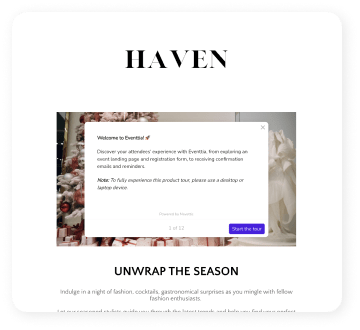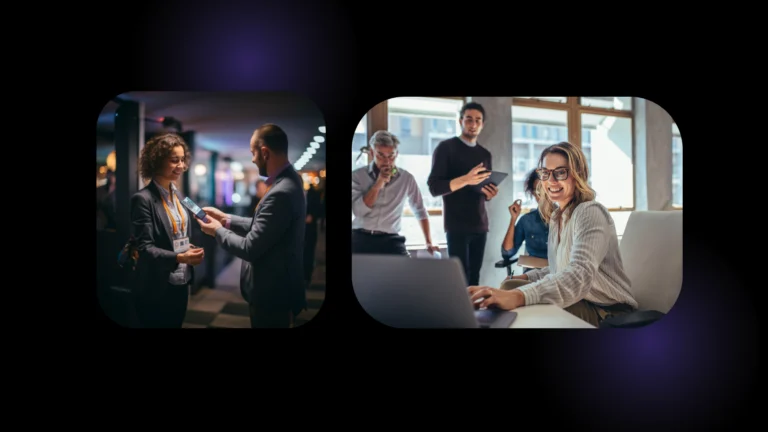Influencer marketing has been a hot topic up for discussion amongst many marketers for the past few years.
Many companies are increasing their focus and shifting their marketing budgets to collaborate with influencers. Industry experts say that influencer marketing is the key ingredient needed to boost sales and drive traffic to events this year.
What is influencer marketing?
If you’re planning to dabble in influencer marketing this year and aren’t familiar with the term, let’s take a look at what the buzz word of the year means.
Influencer marketing is a form of marketing where a company forms a partnership with an influential industry expert to increase brand exposure online and offline. This new school form of advertising and marketing is the best way to utilize the voice of an influencer to reach a targeted niche community.
Why you need an influencer marketing strategy?
According to Social Media Today, influencer marketing delivers 11x higher ROI than traditional forms of marketing, and that 94% of marketers who’ve used influencer marketing found it to be a very effective tactic.
Influencers typically have a close-knit and engaged online community that respects their opinion about the brands and the products they support and love. A brand can benefit from partnering with an influencer that shares or mentions their product or services in a positive way on social media.
Influencer marketing is also a great strategy to use to create authentic content and get your event in front of a large targeted audience.
Let’s take a look at how to build a successful influencer marketing strategy for your upcoming events.
Define Goals and Objectives

Before building an influencer marketing campaign, you’ll want to set clear goals and objectives to measure the success of the partnership. We’ve come across a lot of brands who want to launch an influencer program but have no clue what they want to achieve from running a campaign. Having a defined strategy with long-term and short-term goals and objectives will help measure the ROI. First ask yourself, what do you want to get out of the campaign?
Here are some goals you want to consider for your marketing strategy:
Brand Awareness. Influencer marketing is one of the best strategies to use to generate buzz about your event and reach new audiences. If that’s your goal, you should focus on tactics that will get your brand mentioned or shared by the influencer. Here are some strategies that will help with brand awareness: Multiple brand mentions on social media, inviting an influencer to speak during a session at your conference, hosting a giveaway with tickets to your event.
Brand Engagement. Brand awareness and engagement are two goals that go hand in hand. Setting a goal to increase social media likes, comments, follower count, and use of hashtags are ideal benchmarks to measure the success of an influencer campaign. A great way to increase engagement and build a community with a new audience is to ask your speakers to do an Instagram takeover each day at your conference or event. The instantly become brand ambassadors for the day and can give your online audience a behind the scenes tour.
Lead Generation and Sales. The primary goal for most organizations planning events is to generate leads and increase market share. The use of brand awareness tactics alone isn’t going to drive sales. You’ll want to collaborate with influencers and encourage them to share customized registrations links and discount codes for their followers to use to purchase tickets to your event. This will help your team track the sales conversions from the influencer campaign.
Customer Retention. Retaining your existing customers is just as important as putting in an effort to attract new business. Your customer-base is the best spokesperson to tell your brand story. It’s important to work with your current client base to share testimonials on social media about the satisfaction of your business or goods. Brand advocacy and story-telling are crucial elements that shouldn’t be left out of your influencer marketing strategy.
Search Engine Optimization (SEO). A well-constructed marketing that includes guest posts, product reviews, and the use of back-links can help increase your search engine ranking. These are easy tactics to use to build engagement, drive website traffic, and raise brand awareness.
After setting goals and objectives, it’s important to create performance benchmarks to track the success of the partnership along the way.
How to find the right influencers?

Now that you’ve set your goals for the campaign, it’s time to start identifying the right influencers to partner with to help you reach your target audience. Let’s discuss the steps needed to qualify the partnership.
Mega-Influencers vs Macro-Influencers vs. Micro-Influencers

Influencers can be categorized into three different categories: Mega-Influencers, Macro-Influencers, Micro-Influencers — depending on the number of social media followers they have.
Mega Influencers are typically c-suite level executives or celebrities. They often have a follower count in the millions and have a diverse global following. They usually charge a high-dollar booking fee and require that you work with their executive team or talent agent to book them for any event appearances or collaborations. They may not be industry experts, but they will definitely draw attendance to your event due to their large following.
Macro-Influencers have a follower count between 100,000 and a million. Marketers have been collaborating with macro-influencers for years on brand campaigns and sponsorships. The macro-influencer is considered an industry expert who has expertise in a particular area. Working with a macro-influencer can generate brand awareness due to their large following and engagement rate.
Micro-Influencers are your average person online who have a follower count under 100,000. Despite the small following, this group has been identified by top industry marketing professional as the most influential subject matter expert. Micro-influencers are considered prime real estate in today’s online world due to their niche and highly engaged following. They authentically share brands they love online and often charge less to collaborate. Guaranteeing that your brand will be exposed to the right target market. Another great place to find micro-influencers is by looking through past conference attendance lists to review subject matter experts who have attended for consecutive years in a row.
Qualifying the influencer partnership

Determine potential reach
Look at follower count to determine the potential audience reach the influencer partnership could guarantee.
Examine audience engagement
Look the amount of engagement and comments they’ve r social media posts generate.
Channels of exposure
If you are collaborating with an influencer for your event you want to make sure that they have a presence on all of the channels your brand interacts with.
Previous brand collaborations
Make sure the influencer hasn’t worked with any of your competition and posts content that aligns with your overall event marketing strategy.
The outreach process

Now that you’ve identified the influencers you want to partner with its time to begin the outreach process. Build your contact list organically or using a third-party program and get to know the people on the list before reaching out via email. It’s essential to build a relationship before making the ask to partner.
Remember to make your emails personable and provide background information about your company and what you’re looking to accomplish.
Here’s an example: If a best-selling author recently wrote a book on a topic related to the theme of your event you could invite them to give a keynote speech and host a book signing. This is excellent exposure for the author’s new book, but it also exposed your event to a new audience as well.
Measuring the success of an influencer campaign
To determine the success of your influencer campaign, it’s important to look at the goals you set before launching the program.
- How many impressions did the partnership garner?
- Did the campaign increase registration?
- Did your accounts see an increase in following?
- Did your website see a boost in traffic?
These are all great questions to ask when measuring the ROI of the strategy.
You might be hesitant to launch a campaign at first, but this is just another opportunity to build meaningful, long-lasting relationships with new audiences which a crucial element in event marketing.






